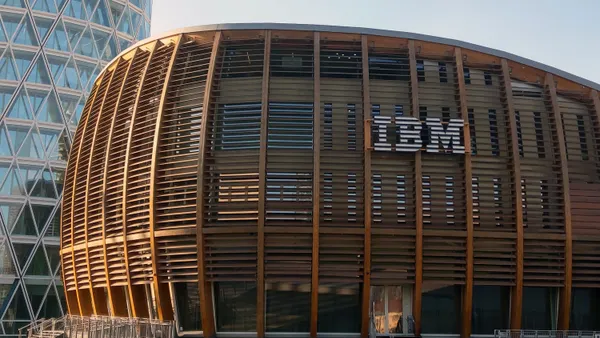As the tech industry grapples with the effect of a $300 billion tariff list proposed by the Trump administration in May, analysts warn of short- and long-term adverse effects of the policy.
The tech industry, which in 2018 totaled $338 billion in exports according to a recent report from CompTIA, stands at the heart of an escalating trade war with China, the United States' biggest trade partner.
Goods and services sold abroad by U.S. companies were responsible for 858,000 American jobs in 2017, which is about half of the entire tech manufacturing workforce according to statistics analyzed by the trade group. Tech products and services rank second among top sectors for U.S. exports of manufactured goods and services.
But analysts fear the tariffs, if enacted, would mean slower growth in exports and an isolated tech industry in the age of integration.
In turn, President Donald Trump says tariffs are part of a broader push to reach "fair and reciprocal trade" with China. Economists say the impact of the trade standoff is likely negative for the U.S., analysts told CNBC.
| Top sectors for goods exports | Top sectors for services exports |
|---|---|
| Transportation / motor vehicles: $283B | Travel services: $211B |
| Tech products: $213B | Tech services: $121B |
| Chemicals: $208B | Business and professional services: $112B |
Tech product exports to China increased by 4.9% last year, to $17.9 billion. U.S. companies exported $2.2 billion worth of technology services to China in 2017, the CompTIA analysis shows.
By comparison, the U.S. imported $187.7 billion in technology products and services from China in 2017.
For one clear sign of how the industry is grappling with the levies, in the first quarter of 2019, import of tech components from Taiwan, India and Canada by American companies grew significantly.
"That shows companies responding to these tariffs and therefore pursuing other strategies in their supply chain," said Stefanie Holland, vice president for federal and global policy at CompTIA. "As the administration readies the new tariffs, the tech industry stands to face tens of billions of dollars in additional costs."
The Consumer Technology Association (CTA) paints an even more dreary picture: the trade group said technology imports affected by tranche four tariffs proposed earlier this month represent "more than half" of the $300 billion total.
But in a fully integrated tech landscape, where categories like “goods” and “services” struggle to accurately describe the outputs of the tech industry, U.S. tech companies faces the long-term risk of becoming disjointed, isolated from the global beat of innovation.
"Tech is so integrated today," said Tim Herbert, senior VP for research and market intelligence at CompTIA, in an interview with CIO Dive. "It’s so difficult to have tech operate in a vacuum, and we’ll see much more fragmentation if we have divided international markets. What does it mean if we have tech that should work together seamlessly but no longer can?"
In the face of adverse U.S. policy, companies are prepared to exert pressure on the Trump administration, hoping some of these effects can be halted.
Consumer goods staple Best Buy is among them. CEO Hubert Joly said in a recent earnings call the company intends "to be actively engaged" as the U.S. government seeks input on the latest round of tariffs.












